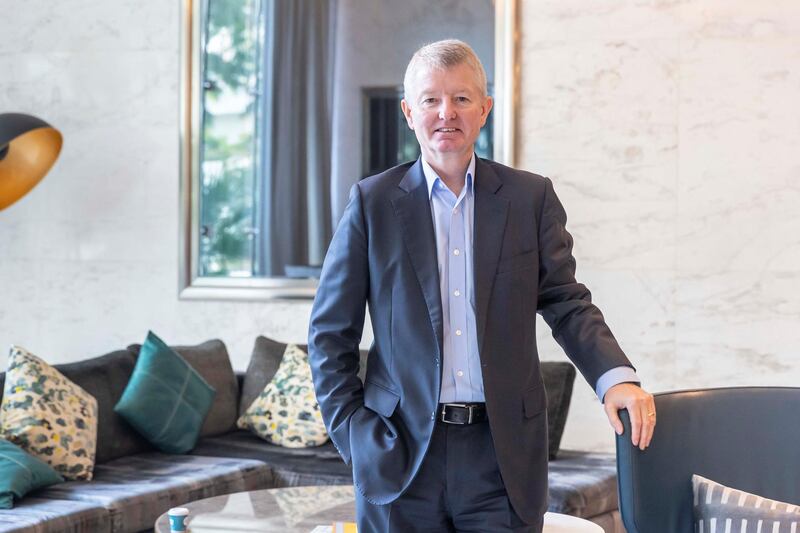Saudi Arabia's Alawwal Bank expects to receive regulatory approval "pretty soon" for its $5 billion (Dh18.4bn) merger with Saudi British Bank (Sabb). The lender will also seek vote of approval from shareholders by the end of the second quarter, a top Alawwal Bank executive said.
"The process is running very much on track and what we are going through now is the regulatory approvals," said Soren Nikolajsen, managing director of Alawwal Bank.
“All the filings have been done [with the regulators]. The EGM’s [extraordinary general meeting] will probably happen towards the very end of the second quarter [to vote on the merger].”
The deal is expected to be finalised during the first half of this year.
The tie-up will create the third-largest bank in Saudi Arabia, the largest banking market in the GCC, with an asset base of $77bn. The boards of the two lenders approved in October the merger, which is estimated to save 10 to 15 per cent of the 2017 combined cost base of Sabb and Alawwal.
It would, however, take about two years from the date of the formal merger to fully integrate the operations into a combined bank, Mr Nikolajsen said. There are 18 different work streams across all business areas being hammered out, some of which will be integrated relatively quickly. The back office operations and technology will take the longest, he added.
_______________
Read more:
[ Sabb and Alawwal approve merger to create third-largest Saudi bank ]
[ HSBC, RBS’s Saudi affiliates strike early merger deal ]
[ UAE's FAB gets investment banking license in Saudi Arabia ]
_______________
HSBC owns about 40 per cent of Sabb and Alawwal is 40 per cent controlled by RBS Holdings, a consortium that includes Royal Bank of Scotland. The boards of the two banks have agreed on the initial terms, under which, Alawwal shareholders will receive 0.485 Sabb shares, valuing each Alawwal share at 16.3 riyals.
After the dilution of the shareholdings, the consortium will be left with a 10.8 per cent stake in the combined entity, and could get a seat on the extended 11-member board and HSBC can nominate three members, Mr Nikolajsen said.
The leadership teams of the two lenders have already started pre-integration talks, including what will be the corporate strategy of the new entity. There is a governance structure in place and "a board and management committee in charge of [the many aspects of] pre-integration".
Organisational consultant Korn Ferry is advising the lenders on the make-up of the new team that will lead the combined bank. The consultant, which has also advised First Abu Dhabi Bank, is giving employees in leadership positions "an equal opportunity to pitch their credentials" for jobs in the new organisation.
“Hopefully, we can soon complete that but we are not there yet,” he said, adding that there won’t be any involuntary redundancies as a result of the merger.
With a focus on corporate and institutional banking, the new entity will have a credible retail banking business that will account for about 10 per cent of the total market share of banking in the kingdom, he said.
“If you think about the break down [of the combined bank] the biggest portion of the balance sheet will be corporate and institutional banking. That’s the sweet spot for both banks,” Mr Nikolajsen said.
The bank will also focus on two of the more vital pillars of the Vision 2030 – the kingdom’s overarching economic overhaul road map – including mortgage finance and funding for small and medium-sized enterprises, he said.
Saudi Arabia wants to raise home ownership for citizens to 52 per cent from a baseline of 47 per cent, and boost the contribution of real estate financing to non-oil gross domestic product to 15 per cent from 8 per cent. It also wants to significantly increase the contribution of SMEs to the non-oil economy in order to create more jobs for Saudi nationals.
“We as banks 100 per cent work in line with the [demands] of the economy and if that’s the demand of the economy then we have to be there. All of it makes perfect sense.”







